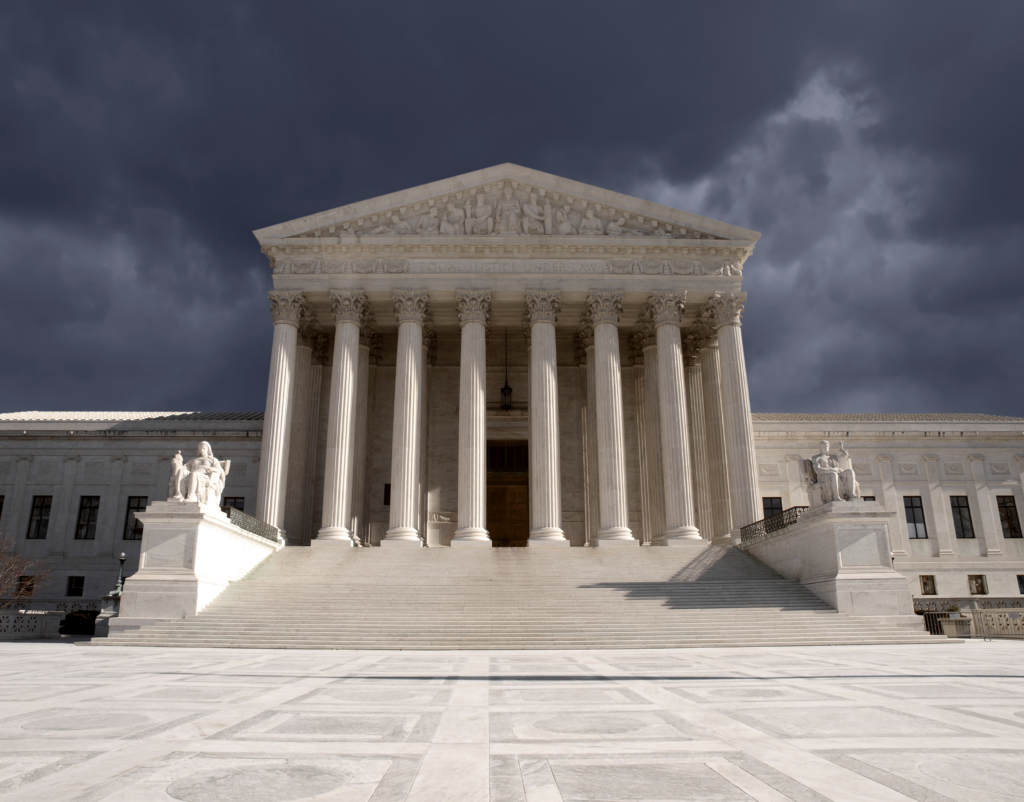SCOTUS Allows Pennsylvania To Count Provisional Ballots From Voters Who Submit “Naked” Mail-in Ballots

In a unanimous order, the U.S. Supreme Court denied the Republican National Committee’s (RNC) request to halt a recent decision from Pennsylvania’s highest court allowing voters in the swing state to cast provisional ballots on Election Day if their mail-in ballots are disqualified due to a technical mistake.
The justices’ move to leave in place the state Supreme Court’s ruling ensures that Pennsylvania voters who submitted defective mail-in ballots will retain the opportunity to have their votes counted in the upcoming election.
Pennsylvania requires voters to place their mail-in ballots in an inner secrecy envelope before subsequently enclosing their ballot in an outer declaration envelope that must be signed and dated. In a 2020 decision, the state Supreme Court held that so-called “naked ballots” — those missing secrecy envelopes — are invalid. Although the same 2020 ruling also concluded that counties are not mandated to offer cure procedures, which allow voters to fix specific mail-in ballot mistakes, it didn’t address the separate issue of provisional voting as a backup remedy.
However, the Pennsylvania Supreme Court’s recent 4-3 ruling at issue in today’s order affirmed that voters have a lawful right to vote provisionally at the polls as a “failsafe” if their naked mail-in ballots are rejected. Pro-voting advocates lauded the split decision — which originated from a dispute over naked ballots rejected during Butler County’s 2024 primary — as a major victory that would protect Pennsylvanians from disenfranchisement.
Rather than creating new standards, the court’s decision merely brought Butler County in line with the longstanding practice of most other Pennsylvania counties that already accept provisional ballots from voters whose mail-in ballots are invalidated.
Nevertheless, the RNC and Pennsylvania Republican Party swiftly took the ruling to the nation’s highest court, contending that the Pennsylvania Supreme Court unconstitutionally exceeded the “ordinary bounds of judicial review” and “usurped” the authority of the state Legislature by “dramatically” altering existing mail-in voting rules. According to the RNC, Pennsylvania law prohibits the counting of a provisional ballot after a voter submitted a timely mail-in ballot — even if said mail-in ballot was disqualified.
The Republican litigants premised their emergency stay request on the fringe independent state legislature (ISL) theory, which posits the U.S. Constitution’s Elections Clause grants state legislatures the sole authority to regulate federal elections without court intervention.
Even though the U.S. Supreme Court previously declined to endorse the far-fetched constitutional argument in its 2022 Moore v. Harper decision, the RNC called the case at hand a “clean vehicle for this Court to…provide badly needed enforcement of the Elections and Electors Clauses.”
Opponents countered that the Pennsylvania Supreme Court was simply “doing its job” in a “routine exercise” of state-level legal interpretation and noted that the RNC lacks standing to bring an ISL-rooted claim since it is not itself a state legislative body.
Aside from proffering ISL theory-based arguments, the RNC maintained that a legal principle counseling against last-minute changes to federal elections provides grounds for the Court to issue a stay. In contrast, the Butler County plaintiffs in the underlying lawsuit told the U.S. Supreme Court that granting the RNC’s stay request would sow confusion and cause “incalculable harm to voters” ahead of the fast-approaching election.
A bipartisan group of county election officials echoed this point, writing in an amicus brief that “for years and even decades…numerous counties have routinely counted provisional ballots” in the manner affirmed by Pennsylvania’s highest court. The RNC’s request would “jeopardize the smooth administration of the election in Pennsylvania and subvert the status quo,” they added.
For its part, the RNC continued to suggest that requiring counties to allow for provisional voting after one’s mail-in ballot is invalidated would amount to imposing cure procedures on counties, despite the state Supreme Court’s earlier rejection of this argument.
Top Pennsylvania election officials also weighed into the lawsuit to oppose the RNC’s position, underscoring in an amicus brief that many of Pennsylvania’s 67 counties have “for years, interpreted the Pennsylvania Election Code to require them to count provisional ballots cast by registered, eligible voters whose mail ballots were invalid due to a disqualifying defect.”